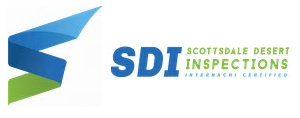The inspection consists of:
- a non-invasive, visual examination of the readily accessible, visible, and installed systems and components of the building, as outlined in the IAC2 Mold Inspection Standards of Practice;
- moisture, temperature and humidity measurements;
- at least three air samples (one indoor and two outdoor); and
- possibly one surface sampling at an area of concern.
- moisture intrusion;
- water damage;
- musty odors;
- apparent mold growth;
- conditions conducive to mold growth;
- the results of a laboratory analysis of all mold samplings taken at the building; and
- any system or components listed in the Standards of Practice that were not visually examined, and
- the reasons they were not inspected.
Here are some considerations for dealing with mold issues in the Phoenix area:
-
Moisture Control: Although Phoenix is known for its dry climate, moisture problems can still arise indoors, particularly in bathrooms, kitchens, and basements. Ensure that plumbing fixtures are properly maintained, and promptly repair any leaks or water damage to prevent moisture buildup.
-
Proper Ventilation: Proper ventilation is essential for preventing mold growth. Ensure that bathrooms and kitchens are adequately ventilated, and consider using exhaust fans to remove excess moisture during activities like cooking or showering.
-
Air Conditioning Maintenance: Air conditioning systems can help control indoor humidity levels, but they must be properly maintained to prevent mold growth. Regularly inspect and clean air filters, ductwork, and condensate lines to ensure optimal performance.
-
Sealants and Weatherproofing: Inspect doors, windows, and other openings for signs of leaks or gaps where water can enter. Use caulking or weatherstripping to seal gaps and prevent moisture intrusion.
-
Monitor Indoor Humidity: Invest in a hygrometer to monitor indoor humidity levels, aiming for levels below 60% to discourage mold growth. Consider using a dehumidifier in areas prone to high humidity.
-
Prompt Remediation: If you notice any signs of mold growth, such as musty odors, discoloration on walls or ceilings, or visible mold growth, address the issue promptly. Clean and disinfect affected surfaces, and address the underlying cause of moisture to prevent recurrence.
It's essential to address mold problems promptly to prevent potential health risks and damage to your property. By taking proactive measures to control moisture and humidity levels indoors, you can minimize the risk of mold growth in your Phoenix-area home or business.
Contact Scottsdale Desert Inspections to schedule your mold inspection.


